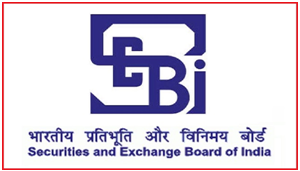Marketing Aptitude: Marketing Finance
Marketing Finance means the resources through which producers, middlemen and consumers get financial facilities so that producers may carry on the production of goods and services easily, middlemen may distribute these goods and services smoothly and consumers may consume these goods and services according to their needs and wants. Thus, marketing finance enables the producers to produce, middlemen to distribute and consumers to consume. The term marketing-finance has been defined as under:
American Marketing Association: – “Market Financing is that part of general business function of providing and managing funds and credit which is directly related to the transactions involved in the flow of goods and services from producer to consumer or industrial user.”
Securities and Exchange Board of India (SEBI)
The Securities and Exchange Board of India (SEBI) is the regulator for the securities or stock market in India. It was enacted on April 12, 1992 in accordance with the provisions of the Securities and Exchange Board of India Act, 1992. The purpose of SEBI is to remove unhealthy practices and to create an environment to help the mobilization of resources through security markets.
Functions of SEBI
As per the section 11 of the SEBI Act, 1992, it has the duty to protect the interest of investors in securities and to promote the development of and to regulate the securities market through appropriate procedures.
Some of the important functions of SEBI to regulate the Indian stock market are given below:
- Specify the rules and regulations regarding registration of intermediaries like depository, participants, share transfer agent, bankers to the issue, debenture trustees, underwriters, stock brokers, portfolio managers, etc.
- Regulates the business in stock exchanges and any other securities market.
- Has the right to approve, withhold or cancel the license of brokers and dealers, if their operational activities shall not be according to the specified guidelines.
- Liable for auditing the performances of stock exchanges of India and to bring transparency in their functioning.
- Control and prohibits the substantial acquisition of shares and take-over of the companies, if it is not in the interest of the company.
- Prohibits insider trading in securities.
- Has the right to inspect the books of accounts and call for periodical returns from recognized stock exchanges.
- Prohibit fraudulent and unfair trade practices relating to securities market.
- Promote and regulate self-regulatory organizations.




